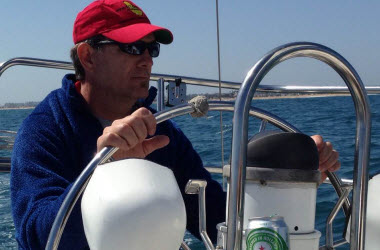May 09, 2017
Recently I was driving to work, listening to an interview with a scientist about some research they just completed. I don’t remember what the interview was about, but something resonated with me when the interviewer asked about the hypothesis. Rarely do I hear about hypotheses in my day to day life. Mostly I hear about the theory of evolution, or that climate change is just a theory. I wondered if in everyday vernacular there is a difference between a theory and a hypothesis.

We all learned about the scientific method in school, but just like geometry, most of us don’t use it in our everyday lives. The scientific method is a cyclic method where you think of a question, formulate a testable hypothesis, perform an experiment/make observations, then either refine your hypothesis or develop a theory. The last step is at the crux of the misunderstanding.
A hypothesis is a testable question or statement. For example, a hypothesis might be “Plants grow towards the sun.” The hypothesis is testable by growing a plant where the sun only shines on one part of the plant.
A theory is testable, repeatable, and has data to back it up. Using the previous hypothesis, if you were to put a plant in a box, cut a hole on one side, and see what direction it grows, that would then provide the crucial third part to a theory. If the data supported the hypothesis and is repeatable, then the hypothesis can become a theory. Another important part of a theory is that it is repeatable. Anyone should be able to go out, put a plant in a box, and get the same results for a theory to be valid.

Where it can become confusing is that a theory can be improved upon or even disproven. The theory of gravity is a perfect example. You can perform the experiment of holding a pebble above the ground and it will always fall towards the ground. As science has progressed, Newton came up with his own theory of gravity and then Einstein improved upon it. Recently, with the discovery of quantum mechanics, Einstein’s theories of relativity don’t work on the quantum level. Also, the theory of gravity on the quantum level doesn’t work on universal scales. Theoretical physicists are working on finding a model of gravity that works on both scales. They are creating new mathematics to solve the problem, but in some frameworks, to test the hypothesis it would require more energy than the sun will output over its entire life.
When you hear that something is “just a theory”, remember for that to be true there must be data. Scientists are using data and observations to improve the theory of climate change. Climate change is not just a guess, there is data to back it up. You can even start taking your own data to prove the theory of climate change. On the other hand, deflategate is not even a hypothesis because you won’t be able to gather all of the players, have them in the same physical conditions, and ensure the same weather conditions for a test.



